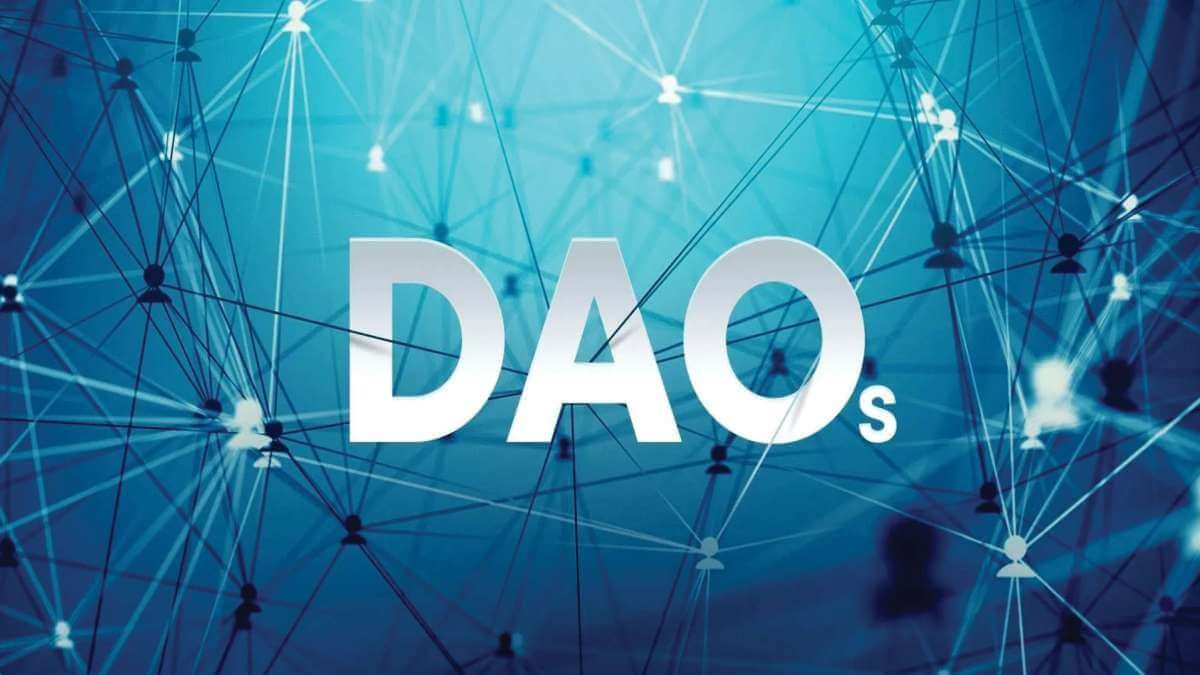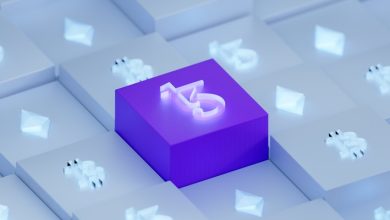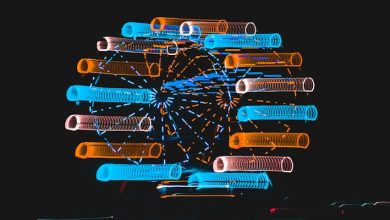The Evolution of Decentralized Autonomous Organizations (DAOs)

- Understanding the concept of Decentralized Autonomous Organizations (DAOs)
- The history and origins of DAOs
- Challenges faced by DAOs in the early stages of development
- The role of smart contracts in enabling DAOs
- Examples of successful DAOs in various industries
- Future trends and possibilities for DAOs in the digital economy
Understanding the concept of Decentralized Autonomous Organizations (DAOs)
Decentralized Autonomous Organizations (DAOs) are a revolutionary concept in the world of blockchain technology and cryptocurrency. These organizations operate without the need for a central authority or middlemen, relying instead on smart contracts and consensus mechanisms to make decisions and execute actions. DAOs are designed to be transparent, secure, and autonomous, allowing for a more efficient and democratic way of organizing and managing resources.
DAOs are built on blockchain technology, which ensures that all transactions and decisions are recorded on a public ledger that cannot be altered or tampered with. This transparency and immutability make DAOs highly secure and resistant to fraud or manipulation. Additionally, DAOs are decentralized, meaning that no single entity has control over the organization, making them more resilient and censorship-resistant.
One of the key features of DAOs is their ability to operate autonomously through the use of smart contracts. These self-executing contracts are programmed to automatically perform certain actions when predefined conditions are met, eliminating the need for human intervention. This automation not only reduces the risk of errors or bias but also increases the efficiency and speed of decision-making processes.
The history and origins of DAOs
The concept of Decentralized Autonomous Organizations (DAOs) has a rich history that dates back to the early days of blockchain technology. DAOs were first introduced in 2013 by a group of developers who sought to create a new type of organization that operated without the need for traditional hierarchical management structures. Instead, DAOs are governed by smart contracts that are written in code and executed automatically on the blockchain.
One of the earliest and most well-known examples of a DAO is “The DAO,” which was launched on the Ethereum blockchain in 2016. The DAO was intended to be a decentralized venture capital fund that would allow members to vote on investment decisions using a token-based voting system. However, The DAO was short-lived, as a vulnerability in its code was exploited, resulting in the theft of millions of dollars worth of Ether.
Despite this setback, the idea of DAOs continued to gain traction in the blockchain community. Since then, there have been numerous projects and initiatives aimed at exploring the potential of DAOs in various industries, from governance and finance to art and entertainment. Today, DAOs are seen as a promising way to create decentralized, transparent, and autonomous organizations that operate in a trustless manner.
As the technology behind DAOs continues to evolve and improve, we can expect to see even more innovative use cases and applications emerge in the coming years. From decentralized governance models to decentralized finance platforms, the possibilities for DAOs are virtually endless. With the growing interest and investment in blockchain technology, DAOs are poised to play an increasingly important role in shaping the future of decentralized systems.
Challenges faced by DAOs in the early stages of development
During the early stages of development, Decentralized Autonomous Organizations (DAOs) face several challenges that can hinder their growth and success. These challenges include technical complexities, regulatory uncertainties, security vulnerabilities, governance issues, and adoption barriers.
One of the main challenges faced by DAOs is the technical complexity involved in building and maintaining a decentralized platform. Developing smart contracts, ensuring interoperability with other blockchain networks, and scaling the DAO to accommodate a growing number of users are all technical challenges that require expertise and resources.
Another challenge is the regulatory uncertainty surrounding DAOs. As these organizations operate in a decentralized and borderless manner, they often fall into a regulatory gray area, making it difficult to comply with existing laws and regulations. This regulatory ambiguity can deter potential participants and investors from engaging with DAOs.
Furthermore, DAOs are susceptible to security vulnerabilities due to their decentralized nature. Smart contracts are prone to bugs and exploits, leading to potential financial losses for participants. Additionally, malicious actors can target DAOs with cyberattacks to disrupt their operations or steal funds, posing a significant security risk.
Moreover, DAOs face governance challenges in decision-making and conflict resolution. Without a centralized authority to enforce rules and policies, DAOs must rely on decentralized mechanisms such as voting and consensus algorithms to reach agreements. This governance model can be slow and inefficient, hindering the organization’s ability to adapt to changing circumstances.
Lastly, DAOs encounter adoption barriers in attracting users and building a sustainable ecosystem. Educating the community about the benefits of decentralized governance, overcoming skepticism and mistrust, and providing user-friendly interfaces are essential for increasing adoption rates. Without widespread adoption, DAOs may struggle to achieve their intended goals and objectives.
The role of smart contracts in enabling DAOs
Smart contracts play a crucial role in enabling Decentralized Autonomous Organizations (DAOs) to function autonomously and efficiently. These self-executing contracts are coded with predefined rules and conditions, allowing them to automatically execute transactions and enforce agreements without the need for intermediaries. By utilizing smart contracts, DAOs can operate transparently and securely, ensuring that all transactions are recorded on the blockchain and cannot be altered.
Smart contracts enable DAOs to automate decision-making processes, such as voting on proposals and distributing funds, based on predefined rules set by the organization’s members. This automation helps to eliminate the potential for human error or bias, ensuring that the DAO operates fairly and efficiently. Additionally, smart contracts provide a high level of security, as they are tamper-proof and resistant to hacking or manipulation.
Furthermore, smart contracts allow DAOs to interact with other decentralized applications (dApps) and blockchain networks, enabling them to access a wide range of services and functionalities. This interoperability enhances the capabilities of DAOs, allowing them to collaborate with other organizations and expand their reach within the decentralized ecosystem. Overall, smart contracts are essential for the successful operation of DAOs, providing the automation, security, and interoperability needed for these organizations to thrive in the decentralized landscape.
Examples of successful DAOs in various industries
Decentralized Autonomous Organizations (DAOs) have gained traction in various industries due to their innovative approach to governance and decision-making. Here are some examples of successful DAOs across different sectors:
- Agriculture: AgriDAO is a DAO that allows farmers to collectively make decisions on crop selection, pricing, and distribution. This has led to increased efficiency and transparency in the agricultural sector.
- Finance: MakerDAO is a prominent example of a DAO in the finance industry. It operates a decentralized lending platform that allows users to generate Dai stablecoin by locking up collateral assets.
- Real Estate: PropyDAO is revolutionizing the real estate industry by enabling decentralized property transactions through smart contracts. This has reduced the need for intermediaries and streamlined the buying and selling process.
- Art: ArtDAO is a community-driven platform that allows art enthusiasts to collectively invest in and manage art collections. This has democratized the art market and provided opportunities for smaller investors to participate.
- Technology: DAOstack is a DAO platform that enables the creation of decentralized applications (dApps) and organizations. It has been instrumental in fostering collaboration and innovation in the tech industry.
These examples demonstrate the versatility and potential of DAOs to disrupt traditional business models and empower communities to govern themselves in a transparent and efficient manner. As the technology continues to evolve, we can expect to see even more innovative use cases emerge across a wide range of industries.
Future trends and possibilities for DAOs in the digital economy
Looking ahead, the future of Decentralized Autonomous Organizations (DAOs) in the digital economy is filled with exciting possibilities and trends. As blockchain technology continues to advance, DAOs are expected to play an increasingly significant role in various industries. One of the key trends that we can expect to see is the integration of artificial intelligence (AI) and machine learning algorithms into DAOs, allowing for more efficient decision-making processes and automation of tasks.
Another important trend is the expansion of DAOs beyond the realm of finance and into other sectors such as healthcare, supply chain management, and governance. This diversification will open up new opportunities for collaboration and innovation, as DAOs become more versatile and adaptable to different use cases.
Furthermore, the concept of “DAO-as-a-Service” is gaining traction, where companies can outsource certain functions to decentralized autonomous organizations, reducing costs and increasing transparency. This model has the potential to revolutionize the way businesses operate, making them more agile and responsive to market changes.
Overall, the future of DAOs in the digital economy looks promising, with endless possibilities for growth and development. As technology continues to evolve, DAOs will likely become an integral part of the business landscape, driving efficiency, transparency, and innovation across various industries.



